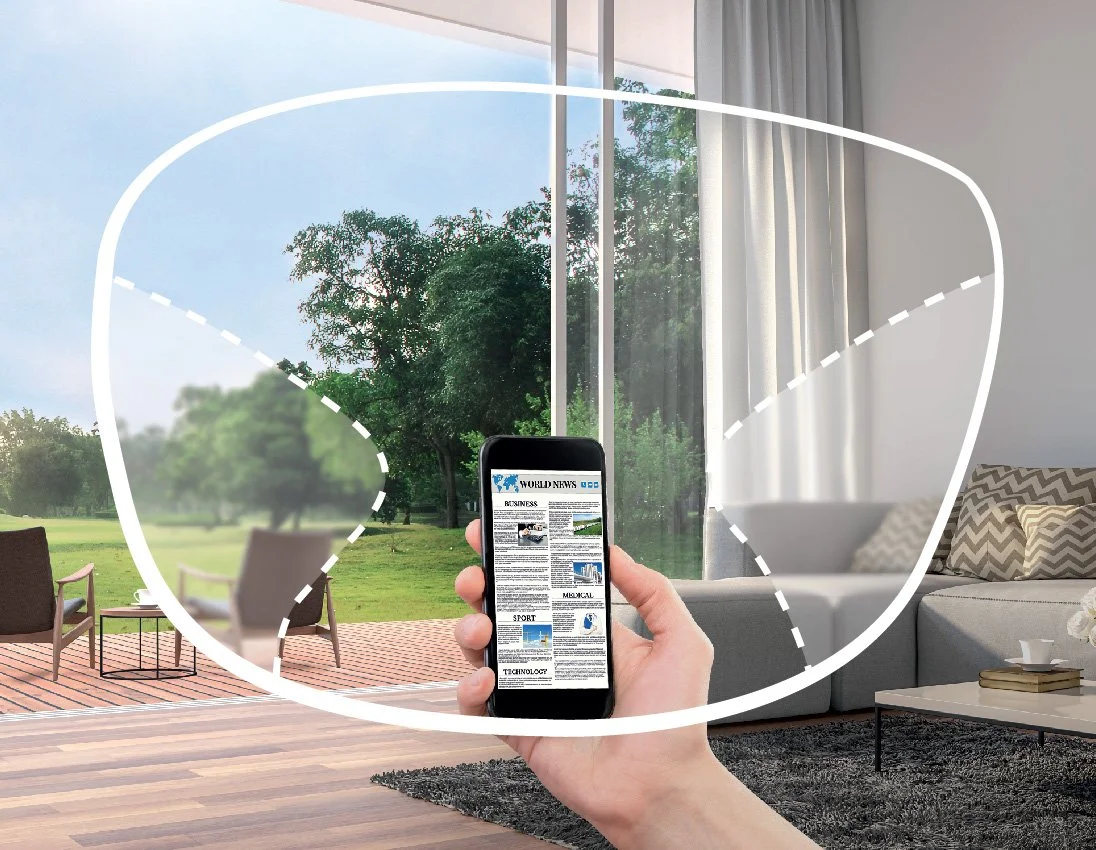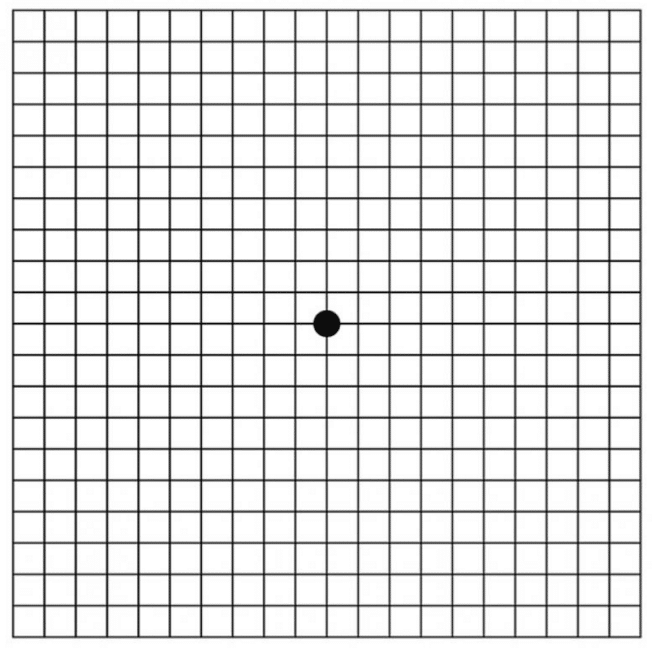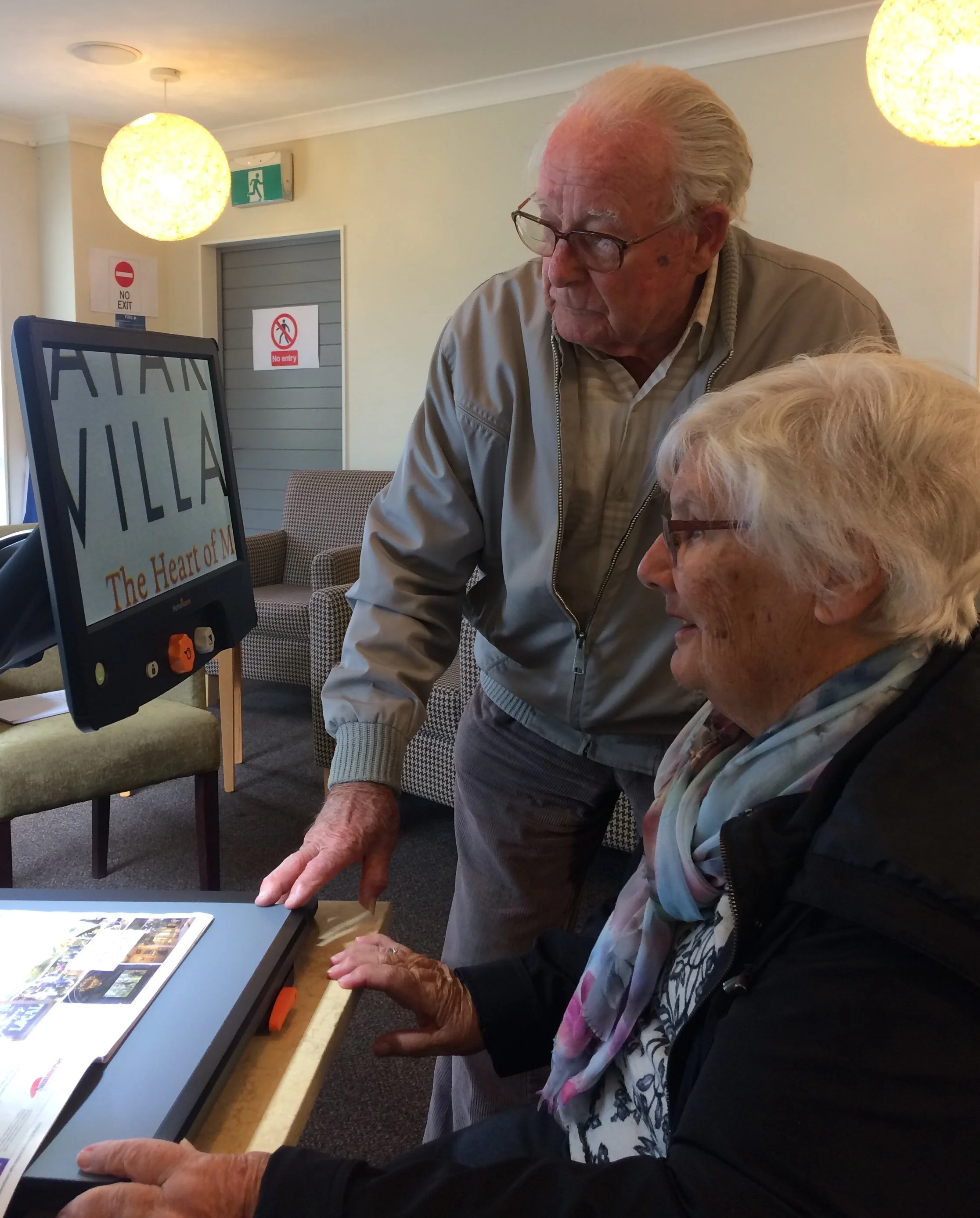All of this is normal and will improve as you adapt to your lenses. Here are our recommendations.
Keep them on.
You may be tempted to switch back and forth between your progressive lenses and your old glasses, but don’t. The more you wear your progressive lenses, the quicker you’ll get used to them. Even if you don’t ‘need’ any vision correction to look across the room, or your intention was not to wear these glasses full time, it will help to wear them as much as possible at the beginning.
Don’t just move your eyes.
Moving your eyes around the lens can cause eye strain, headaches and discomfort. Get in the habit of moving your whole head, especially when looking through your far and mid-range prescriptions. You will naturally look down when you are reading.
Position your glasses correctly.
Proper alignment will make a difference. Keep your glasses positioned high up on your nose and fitting well behind your ears. This improves your field of clear vision and reduces distortion.
Be patient.
Stick with your new glasses, and you will train your brain to see properly through the lenses, and looking through the different areas of the lens will become a habit. It may take a few weeks, but you will get there!
How Progressives Work:
Instead of having just two or three lens powers like bifocals or trifocals, progressive lenses are true multifocal lenses that provide a seamless progression of many lens powers for all viewing distances.
A “corridor" of optimum lens power runs vertically down each progressive lens. We have taken careful measurements of your eyes and glasses frame to ensure this corridor is in just the right location so that your eyes can naturally access the various powers within the lens. This design allows you to look up to see clearly across the room and in the distance. You also can look ahead to view your computer in the intermediate zone and drop your gaze downward to read and do fine work through the near zone of the lenses.
If you glance to the very far right or left, you may notice your vision is slightly wavy. You may also notice this wavy vision in your periphery at first when you move your head side to side, but after a very short time you will become unaware of this.
These are completely natural, and will diminish within a short period of time as you adapt to your new progressives.
Driving Take care when driving - do not use new progressives if you are not confident in the early days.
Enjoy your new glasses!












